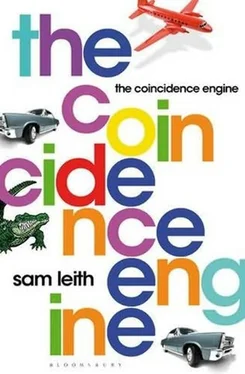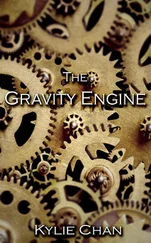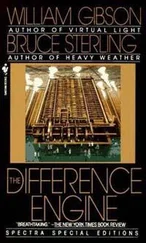‘But, Nicolas – why would anyone have wanted to kill you? Your work was abstract. You were a mathematician, an academic. You’re just being -’ she dared it; after a week, she dared it – ‘paranoid.’
‘No!’ he snaps. ‘That is how they try to discredit me. How they try to make me lower my guard. Paranoid! Tchoh! Even then, I knew my work would have – implications. I let something slip in a lecture, and one of their agents – Oh, believe me, Isla Holderness. They have agents everywhere. Everything is connected to everything else, and in this spiderweb there are good spiders and there are bad spiders.’
He has lost his thread.
‘You said something in a lecture.’
‘Yes, yes. Somebody wrote to me. Frederick Nieman, he called himself. Some kind of joke, I think: Niemand . “Fred Nobody.” That was how I was to know him. He said he was interested in my researches into causality. I was not working on causality, then. Not openly. I was still a geometer. But at the time I had started to think about these things: about geometries that were not strictly mathematical: geometries of desire and intention. Nieman had happened on my work by chance, he said. He understood some of the implications. He foresaw a great future for me, he said. And he would pay.’
Banacharski huffs, a little, as they reach the top of the hill. She feels him leaning more heavily on her arm.
‘They wanted what I was doing, for them and them alone, but they did not understand what I was doing. They thought I could make them a weapon: something that would change outcomes. Make magic bullets. If you sell weapons, you know, everything looks like a weapon.
‘I knew, of course – he did not even need to say it – that if I did not do what they wanted they would kill me. I was afraid. I told him that I would share my work with them. This was a company that had done great wrong. It worked, during the war, with the Nazi government. Many, many people were killed with their weapons. But I was scared.’ He looks ashamed, but at the same time a little defiant. ‘I told them I could build them a probability bomb. For that, I told them, they needed to pay, and I would need isolation.
‘So they paid me, helped me disappear. I disappeared – this was the big joke – after I resigned in protest at the discovery that their money was funding my chair at the Institute. They liked that. Double bluff.’
Something in Banacharski’s face changes, like when a shift in the angle of the light turns a transparent surface opaque. ‘I became my own ghost,’ he says.
‘The statement you gave, though,’ says Isla, ‘about the systematic corruption of science by the military?’
‘Yes,’ says Banacharski. ‘They let me attack them because they thought it would help. I was telling the truth. Triple bluff. There is no bomb. There never was. I am engineering reality – not assembling some toy out of nuts and bolts.’
They walk on a bit. Isla watches a small brown bird prick and preen in the grass, the beak and head moving sharply.
‘But Nieman,’ he says, as if more to himself than Isla, ‘I think Nieman is coming back.’
‘Back? He’s been here?’ Isla asks.
‘No,’ says Banacharski. ‘We haven’t met. Only letters. He writes to me on yellow paper. Always yellow paper. Like the paper I use. I am afraid about meeting him. But I think he is coming for me anyway.’
‘What did you do with their money?’ Banacharski looks at her sharply. She worries, for an instant, she went too far. She sees something of cunning in his expression – a decision to say something almost taken, then a decision not to.
‘You must concentrate, Isla. I stalled them. My work is nearly finished. But they may come for me. They have been losing patience. You know, you need to take care for yourself…’
He is now looking down at his wrecked flip-flops.
‘There is something I would like you to have of mine, Isla. A gift. You have been someone who has shown me kindness.’
Banacharski reaches into the pocket of his filthy trousers and produces something. Isla sees it glint, and then she startles at the pressure as he presses it into her palm. As he does so he looks furtively about him, into the distant trees, the empty ground between.
He withdraws his hand and she looks into her own. It is a ring, right where her lifelines cross – a simple silver thing, with a figure-of-eight design sweeping over the top of it.
‘It was my mother’s,’ says Banacharski. ‘I have nobody. Now I give it to you.’
‘I can’t.’
‘I have nobody. You take it. That ring will be – how should I say it? – a lucky charm for you.’
He gives her a strong, fond look. ‘Borrow it, then. Think of it as a loan. Come back at the end of the summer. Bring it back to me. God keep you safe.’
Isla sets off for home the following day, walking down into the local town, from where she arranges a taxi – it takes her half a day – to get back to Toulouse. That is the last time she sees Banacharski alive.
As Hands described to Red Queen, they continued to exchange letters. But Banacharski’s letters had become wilder. Isla, back in Cambridge, felt uneasy – as if there was someone shadowing her. When she went out every morning to get the newspapers, she found herself casting suspicious glances down the aisles at the Co-op. There’d always be someone holding up a pot of yogurt or a tin of sweetcorn, fondling it abstractly, reading the label with studious distraction.
She thought for a time that she might be going mad – that Nicolas’s paranoia was rubbing off on her. The magazine continued to forward his letters. Sometimes, the way they were folded in the envelope, a certain looseness about the glue, made her feel like they might have been tampered with. She took to hiding them.
At the same time, other letters started to come – more personal ones, addressed directly to her. The handwriting on the envelopes of these was different – more restrained – though the writing inside was the same.
In the last of these, he wrote: ‘Don’t worry. You have my love. I am nearing the centre of the artichoke. Do not trust. Destroy.’
Something, she thought, had started to confuse him. The letters were in the same handwriting, but they seemed to be from two different people. The letters that came through the magazine raved about this ‘machine’, which he said was ‘nearly built’. She puzzled over that.
In these letters, he promised her that ‘when the time was right’, he would share his discoveries with her: she was, he said – and here it was triple underlined – ‘the custodian of his legacy’. But he said the time was not yet right. He said he was ‘storing some parts of the machine’ in a place known only to him.
The other letters, the ones that she told nobody about, were love letters, of a sort. That is, they did not profess love directly. But they were personal. They were trying to make a connection. And they talked at length – great length – about his childhood, and what he remembered about the war. Much was about his mother, Ana, the presumed owner of the ring he had entrusted to her. She had lived through the war but cancer got her while Banacharski was in his teens. He talked about his first memory of her, rocking in a chair with him, sitting in her lap wrapped in a woollen blanket. That was at his grandparents’ house in Allenstein, what is now Olsztyn in northern Poland. He said he remembered how the blanket had tasted: of dust and pine.
Banacharski enclosed, in these letters, pages from a manuscript he said was ‘my mother’s testament’. It seemed to be a memoir of some sort, but it was told in the third person, annotated in pencil by Nicolas, and quoted from in his letters. Between the two narratives – and what of the history of his life remained on the public record – Isla was able to piece together the sequence of events.
Читать дальше












